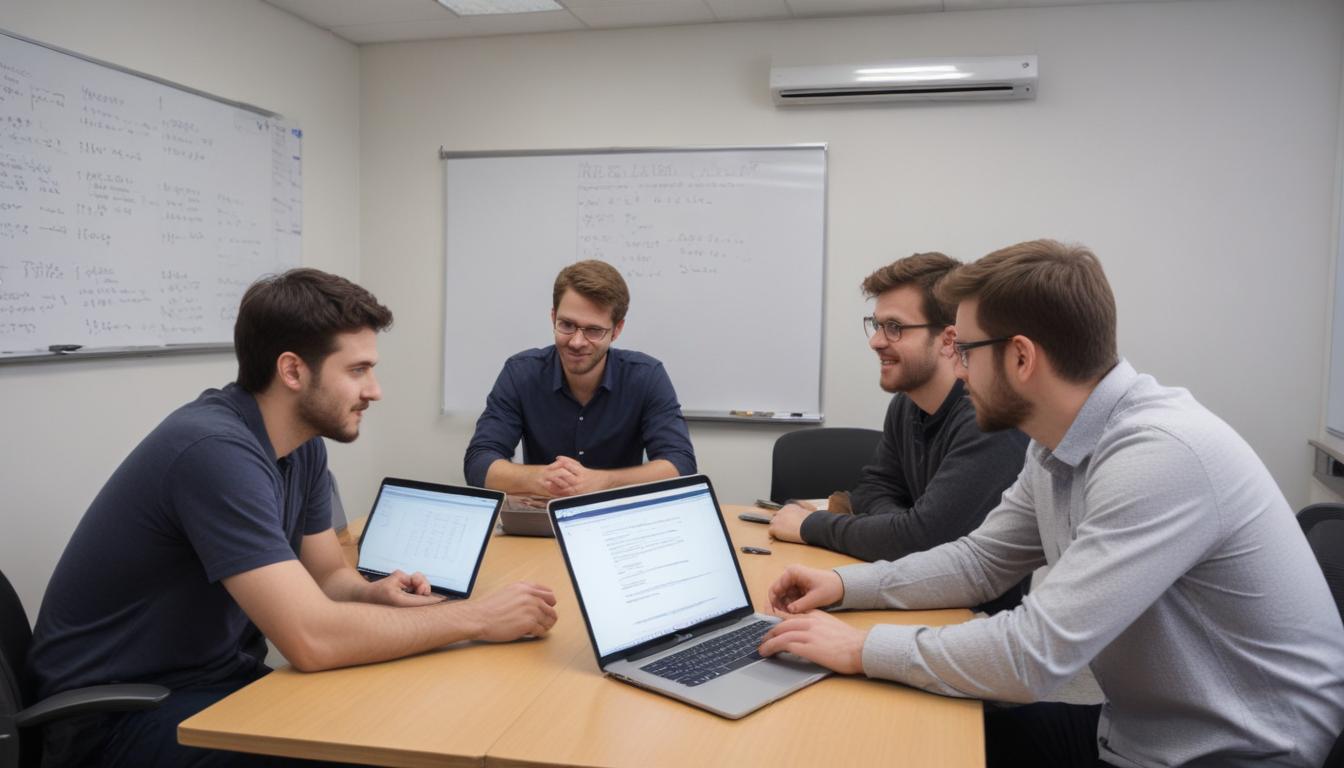Now Reading: Win Your Software Engineering Interview
-
01
Win Your Software Engineering Interview
Win Your Software Engineering Interview

How to Conquer the Software Engineer Interview
The thought of a software engineering interview can send a shiver down the spine of even the most seasoned developer. The gauntlet of technical screens, whiteboarding challenges, and abstract system design questions feels less like a job interview and more like an academic interrogation. You spend weeks, sometimes months, grinding through problems, only to feel like you’re unprepared for the one question you’re asked. The pressure is immense, and the fear of freezing up or failing to prove your worth is a heavy burden to carry.
But it doesn’t have to be this way. The interview process, while challenging, is a skill you can learn and master. The key isn’t to memorize every possible algorithm but to build a solid foundation and develop a strategic approach. This guide will demystify the entire process, from the initial recruiter call to the final offer. We will provide you with a clear, actionable roadmap to build your confidence, showcase your skills effectively, and land the software engineering job you deserve.
Decoding the Modern Tech Interview Process
Navigating the software engineer interview process is like playing a video game with multiple levels. Each stage tests a different set of skills, and you must clear one to advance to the next. It typically begins with a recruiter screen, a non-technical conversation to gauge your background, interest in the role, and general culture fit. This is your first chance to make a good impression and learn more about the team and company. Be prepared to talk about your resume and have a compelling story about why you want this specific job.
Following the recruiter call, you’ll face the technical phone screen. This is usually a 45 to 60-minute call with an engineer where you’ll tackle one or two coding problems in a shared editor. The focus here is on your problem-solving abilities, coding fundamentals, and communication skills. The final stage is the “on-site” loop, which today is often conducted virtually. This is the most intensive part, consisting of three to five back-to-back interviews covering a range of topics, from deep algorithmic challenges to high-level system architecture and your past experiences.

Mastering the Technical Rounds
The core of the interview process is the technical assessment, designed to evaluate how you think, code, and solve problems under pressure. The most common format is the data structures and algorithms round. Here, you’ll be presented with a problem and asked to code a solution on a whiteboard or in a shared editor. Success isn’t just about getting the right answer; it’s about how you get there. Interviewers want to see you clarify requirements, talk through your thought process, discuss trade-offs (like time vs. space complexity), and write clean, functional code. Consistent practice on platforms like LeetCode or HackerRank is non-negotiable for building this muscle memory.
For mid-level to senior roles, the system design interview is a critical component. You’ll be given a vague prompt, such as “Design a URL shortener” or “Design the Instagram feed.” This round tests your ability to handle ambiguity and architect scalable, reliable systems. The key is to lead the conversation. Start by asking clarifying questions to define the scope, features, and constraints. Then, sketch out a high-level architecture, discussing components like load balancers, databases, caches, and APIs. Focus on explaining the “why” behind your decisions and be prepared to discuss trade-offs and potential bottlenecks.
Proving Your Value in the Behavioral Interview
Often underestimated, the behavioral interview is where the company decides if they want to work with you. Your technical skills might get you to the final round, but your soft skills will get you the offer. Companies want to hire collaborative, resilient, and proactive engineers who can handle conflict, learn from failure, and contribute positively to the team culture. Simply saying you’re a “team player” isn’t enough; you need to prove it with concrete examples from your past.
Prepare for this by using the STAR method (Situation, Task, Action, Result). Before your interview, brainstorm specific stories from your career that demonstrate leadership, teamwork, conflict resolution, and your ability to overcome challenges. For example, when asked about a time you disagreed with a colleague, describe the specific situation, the task you needed to accomplish, the respectful actions you took to communicate your position and understand theirs, and the positive result that came from the collaboration. Having three to five of these powerful stories ready will allow you to answer any behavioral question with confidence and impact.


































